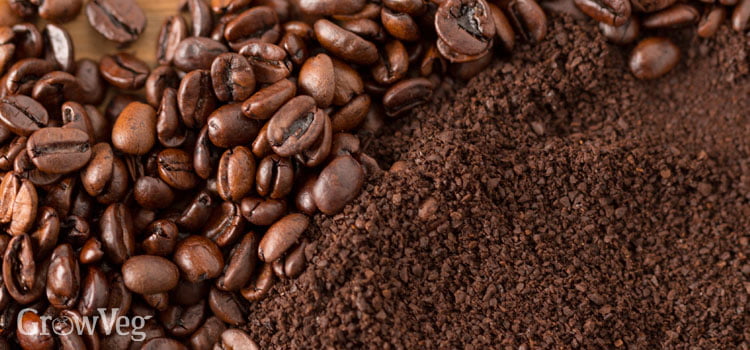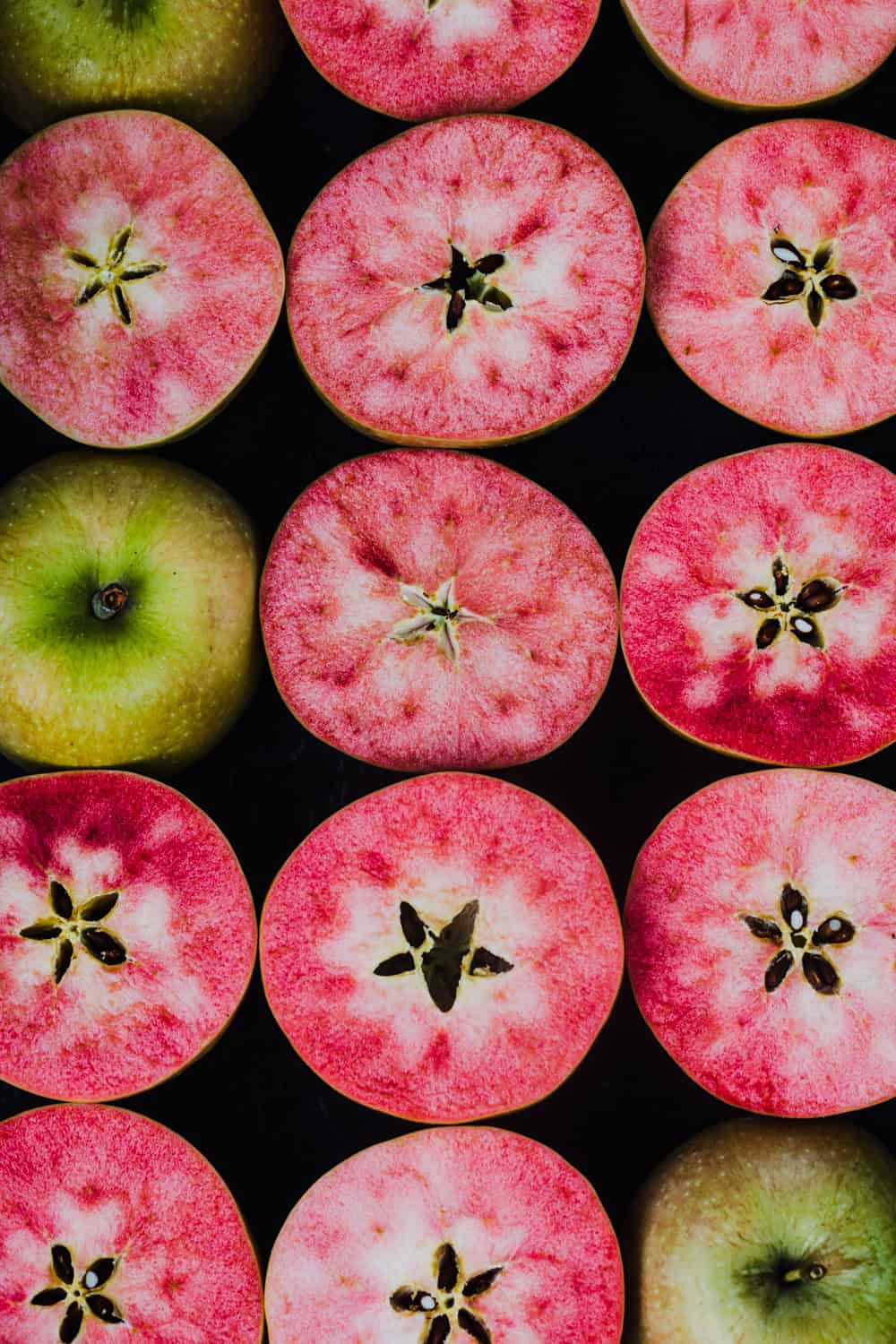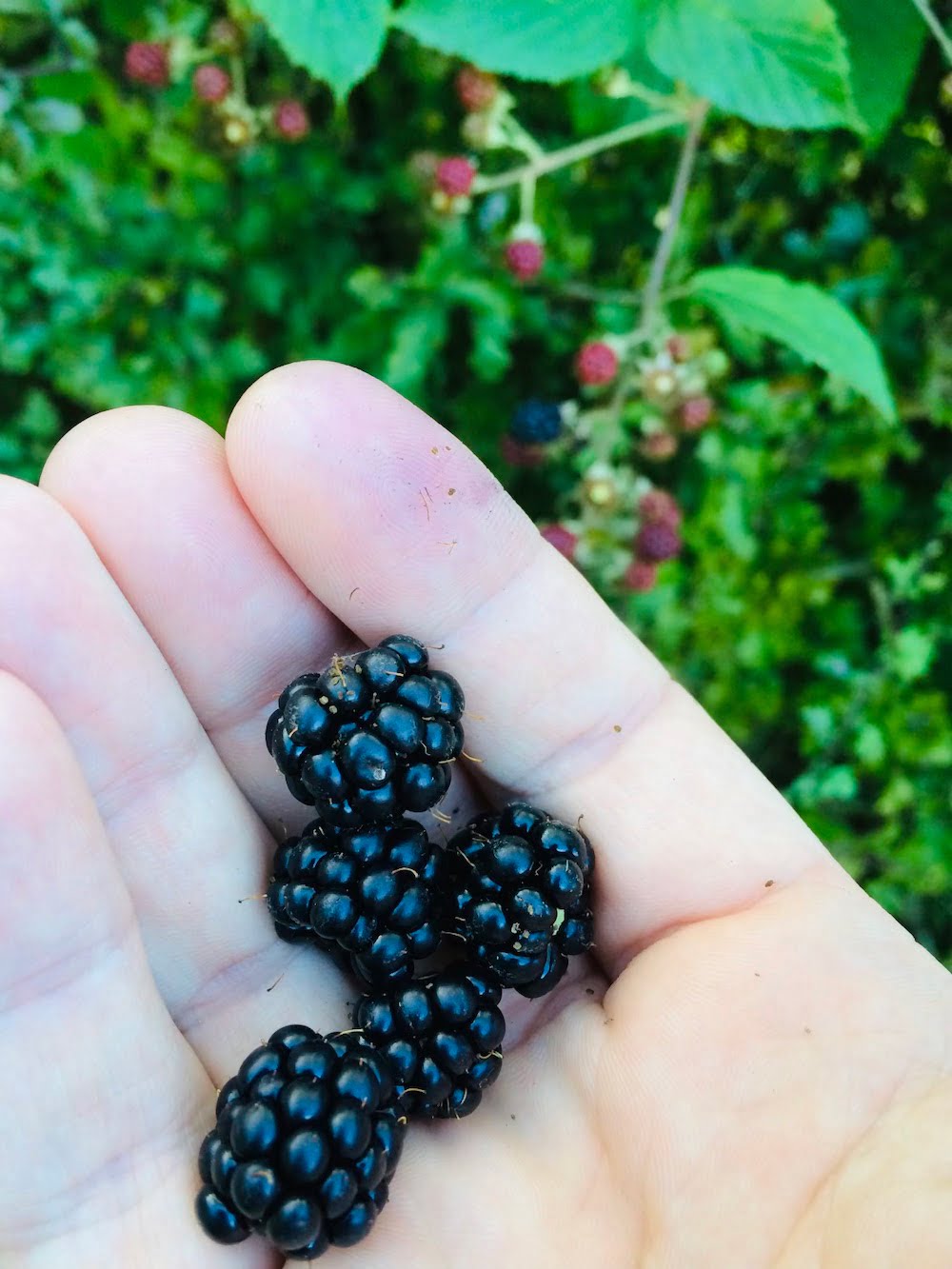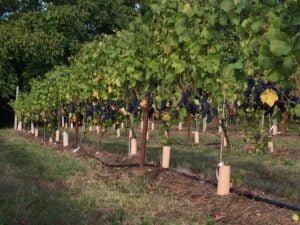In recent years, there has been growing interest in finding sustainable and environmentally-friendly ways to enhance the growth and productivity of plants. One such method that has gained popularity is the use of coffee grounds as a natural fertilizer for various plants, including strawberries. But are coffee grounds really beneficial for these delicate and delicious fruits? This article investigates the potential benefits and drawbacks of using coffee grounds as a fertilizer for strawberry plants, providing an insight into whether this common kitchen waste can be a valuable resource in the garden.
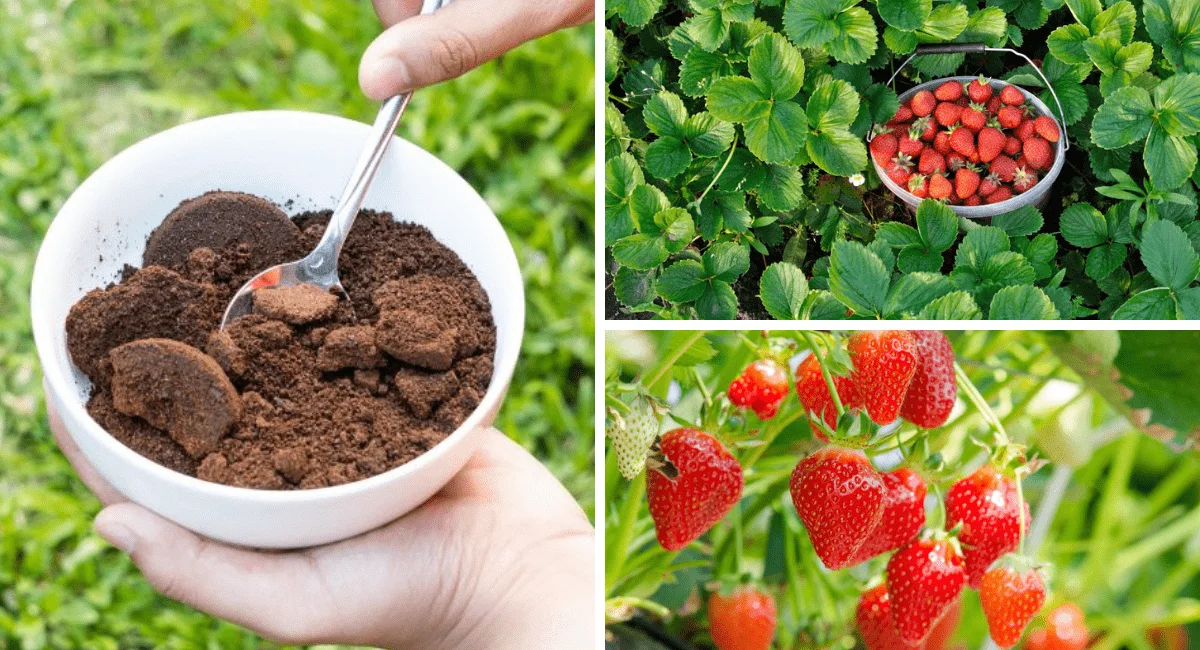
Benefits of Using Coffee Grounds for Strawberry Plants
Improves Soil Quality
One of the major benefits of using coffee grounds for strawberry plants is that it helps improve the overall soil quality. Coffee grounds are rich in organic matter, which adds valuable nutrients to the soil. The addition of organic matter enhances the soil structure, increases its water-holding capacity, and promotes aeration. This, in turn, creates an ideal environment for the growth of strawberry plants.
Enhances Nutrient Availability
Coffee grounds are not only a source of organic matter but also provide essential nutrients that are beneficial for strawberry plants. The primary nutrients found in coffee grounds include nitrogen, phosphorus, and potassium, which are vital for the growth and development of plants. By using coffee grounds as a natural fertilizer, you can ensure that your strawberry plants have an adequate supply of these essential nutrients, leading to healthier and more productive plants.
Suppresses Weeds
Weeds can be a nuisance in any garden, including strawberry beds. However, using coffee grounds can help suppress weed growth around strawberry plants. The dense nature of coffee grounds acts as a barrier, preventing sunlight from reaching weed seeds and inhibiting their germination. Additionally, coffee grounds contain substances that inhibit weed growth, further reducing the competition for nutrients and space in the strawberry bed.
Repels Pests
Another advantage of using coffee grounds for strawberry plants is their ability to repel pests. Coffee grounds have a strong and distinct odor, which acts as a natural deterrent for many pests. For instance, the smell of coffee grounds can repel snails and slugs, preventing them from damaging the strawberry plants. Coffee grounds can also deter ants, which are known to cause harm to the roots of strawberry plants. Additionally, the smell of coffee is disliked by cats, making it an effective natural repellent for these animals.
Considerations When Using Coffee Grounds on Strawberry Plants
Acidity Levels
One important consideration when using coffee grounds on strawberry plants is the acidity levels. Coffee grounds have a slightly acidic pH, typically ranging from 6.0 to 6.3. While strawberry plants generally prefer slightly acidic soil, it is crucial to monitor the acidity levels to ensure they remain within the optimal range. Excessive acidity can lead to nutrient imbalances and may negatively affect the growth and productivity of the plants.
Quantity and Frequency
The quantity and frequency of applying coffee grounds to strawberry plants should also be taken into account. It is recommended to apply a thin layer of coffee grounds around the base of the strawberry plants, avoiding direct contact with the stems. Applying too much coffee grounds at once can increase the acidity levels and potentially harm the plants. As for frequency, it is advisable to apply coffee grounds in moderation and supplement them with other organic fertilizers to maintain a balanced nutrient supply.
Composting Process
Coffee grounds can be composted before being used as a soil amendment for strawberry plants. Composting helps break down the organic matter in the coffee grounds and allows for a more gradual release of nutrients. It also helps neutralize the acidity levels, making the coffee grounds more suitable for strawberry plants. Composting coffee grounds with other organic materials, such as leaves or grass clippings, creates a well-balanced compost that can further improve soil quality and enhance the overall health of the strawberry plants.
Moisture Retention
Coffee grounds have the ability to retain moisture, which can be beneficial for strawberry plants, particularly in dry or arid climates. The moisture-retaining properties of coffee grounds help to prevent the soil from drying out too quickly, ensuring that the strawberry plants have a continuous water supply. However, it is important to avoid overwatering when using coffee grounds, as excessive moisture can lead to root rot and other plant diseases.
Potential Contaminants
While coffee grounds can provide numerous benefits to strawberry plants, it is essential to consider the potential presence of contaminants. Coffee beans are often treated with pesticides and other chemicals during cultivation and processing. These chemicals can remain in the coffee grounds and, if used excessively, may have a detrimental effect on the plants. It is advisable to use organic, pesticide-free coffee grounds to minimize the risk of introducing contaminants to the strawberry bed.

Acidity Levels in Coffee Grounds
Understanding pH Levels
pH is a measure of the acidity or alkalinity of a substance, on a scale ranging from 0 to 14. A pH value of 7 is considered neutral, while values below 7 indicate acidity, and values above 7 indicate alkalinity. The acidity or alkalinity of soil plays a crucial role in the availability of nutrients to plants. Strawberry plants prefer slightly acidic soil, with a pH range of 5.5 to 6.5, to optimize nutrient uptake.
Effects of Acidity on Strawberry Plants
The acidity levels in coffee grounds can have both positive and negative effects on strawberry plants. When used in moderate amounts, the slight acidity of coffee grounds can help maintain the desired pH range for strawberry plants. This promotes optimal nutrient availability and uptake for the plants. However, excessive acidity from an overabundance of coffee grounds can disrupt the pH balance of the soil, leading to nutrient imbalances and potential harm to the strawberry plants. It is important to monitor the pH levels closely and make adjustments as necessary to ensure the plants thrive.
Using Coffee Grounds to Improve Soil Quality
Organic Matter Addition
Coffee grounds are a valuable source of organic matter, which improves soil quality when used as a soil amendment for strawberry plants. Organic matter adds stability to the soil structure, creating pore spaces that allow for adequate drainage and aeration. It also enhances the water-holding capacity of the soil, preventing excessive water runoff and promoting better moisture retention. The addition of organic matter promotes the growth of beneficial soil microorganisms, leading to increased nutrient availability for strawberry plants.
Enhanced Drainage
Improving soil drainage is crucial for strawberry plants, as excessive waterlogged conditions can lead to root rot and other plant diseases. The addition of coffee grounds to the soil helps enhance drainage by improving soil structure. The organic matter in coffee grounds helps to break up compacted soil, allowing water to infiltrate more easily and preventing the accumulation of excess water around the roots of the strawberry plants. This promotes healthy root development and reduces the risk of water-related issues.
Increased Microbial Activity
Coffee grounds can stimulate microbial activity in the soil, which is essential for nutrient cycling and plant health. Microbes present in the soil break down organic matter, releasing nutrients in forms that can be readily absorbed by plants. The organic matter in coffee grounds serves as a food source for these beneficial microbes, encouraging their growth and activity. This increased microbial activity leads to improved nutrient availability and promotes overall soil fertility, benefiting the growth and productivity of strawberry plants.
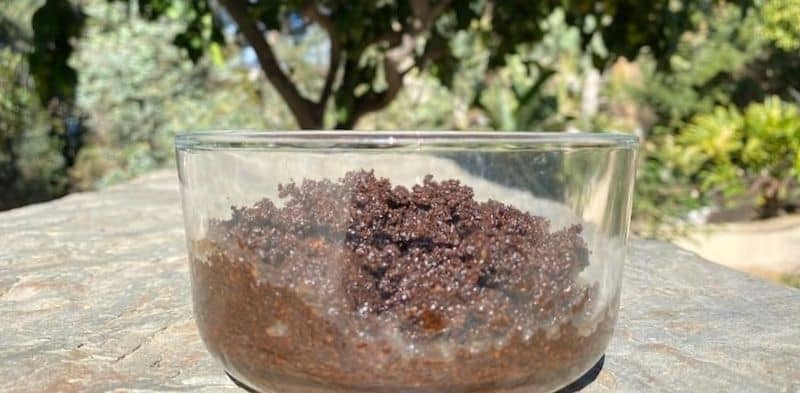
Enhancing Nutrient Availability with Coffee Grounds
Nitrogen
Nitrogen is a vital nutrient for the growth and development of strawberry plants. Coffee grounds contain a significant amount of nitrogen, a macronutrient essential for promoting leaf and stem growth, as well as overall plant vigor. The addition of coffee grounds as a nitrogen source can help maintain adequate nitrogen levels in the soil, ensuring that strawberry plants have access to this essential nutrient throughout their growing season.
Phosphorus
Phosphorus is essential for various plant processes, including root development, flower formation, and fruit production. Coffee grounds contain moderate levels of phosphorus, making them a valuable natural fertilizer for strawberry plants. The addition of coffee grounds can improve phosphorus availability in the soil, promoting healthy root growth and enhancing the overall reproductive capacity of the strawberry plants.
Potassium
Potassium is vital for the overall health and strength of strawberry plants. It plays a crucial role in regulating water uptake, improving disease resistance, and enhancing fruit quality. Coffee grounds have a good potassium content, making them a beneficial nutrient source for strawberry plants. By incorporating coffee grounds into the soil, you can ensure an adequate supply of potassium for the plants, resulting in improved overall plant health and productivity.
Other Essential Nutrients
In addition to nitrogen, phosphorus, and potassium, coffee grounds also contain other essential nutrients, albeit in smaller quantities. These include calcium, magnesium, sulfur, and trace elements like iron, manganese, and zinc. These nutrients are all vital for the growth and development of strawberry plants. While coffee grounds alone may not provide a sufficient supply of these nutrients, they contribute to the overall nutrient pool in the soil and complement the nutrient uptake of strawberry plants when used as part of a well-balanced fertilizer program.
Suppressing Weeds with Coffee Grounds
Mulching Effect
Coffee grounds can be used as a mulch around strawberry plants, providing a physical barrier that suppresses weed growth. When coffee grounds are applied as a mulch, they form a dense layer that inhibits sunlight from reaching the soil surface. This prevents weed seeds from germinating and reduces weed competition for nutrients, water, and space. The mulching effect of coffee grounds not only helps control weeds but also helps maintain soil moisture levels and regulate soil temperature, creating optimal growing conditions for strawberry plants.
Allelopathy
Coffee grounds also possess allelopathic properties, which inhibit the growth of certain plant species, including weeds. The allelopathic substances present in coffee grounds can interfere with weed germination, root development, and overall plant growth. This natural weed-suppressing mechanism makes coffee grounds an effective and eco-friendly alternative to conventional herbicides. However, it is important to note that the allelopathic effects of coffee grounds can vary depending on the weed species and the concentration of coffee grounds used.
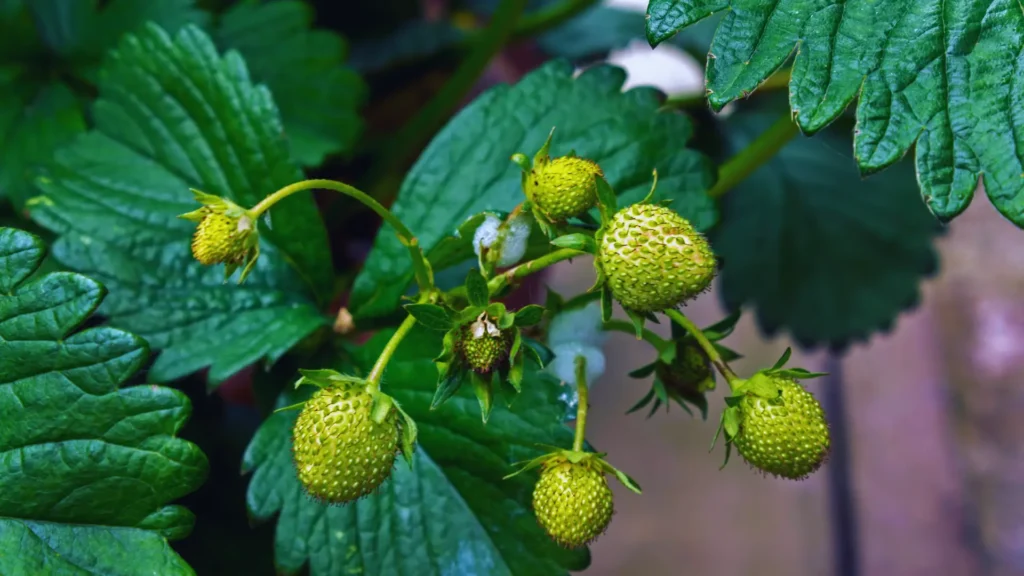
Repelling Pests Using Coffee Grounds
Snails and Slugs
Coffee grounds can act as a natural deterrent for snails and slugs, which are common pests that can cause significant damage to strawberry plants. The strong aroma of coffee is disliked by these pests, and they tend to avoid areas where coffee grounds are present. By strategically placing coffee grounds around the strawberry plants, you can help protect them from these harmful pests and minimize the need for chemical pesticides.
Ants
Ants are another pest that can cause issues in strawberry beds, as they often tend to nest near the plants’ roots. Coffee grounds can serve as a barrier to deter ants and prevent them from entering the strawberry bed. The strong scent of coffee disrupts their pheromone trails, making it difficult for ants to navigate and locate the plants. This natural pest-repelling property of coffee grounds provides an eco-friendly solution to ant problems in strawberry gardens.
Cats
Cats can be a nuisance in the garden, causing damage to strawberry plants by digging and using the beds as litter boxes. Coffee grounds can help repel cats due to their strong smell, which cats find unpleasant. By spreading coffee grounds around the strawberry plants, you can effectively deter cats from entering the garden and protect your strawberry plants from harm.
Managing Acidity Levels When Using Coffee Grounds
Testing Soil pH
To manage acidity levels when using coffee grounds on strawberry plants, it is essential to regularly test the soil pH. You can use a soil pH testing kit or consult with a local agricultural extension service for accurate pH measurements. Testing the pH allows you to monitor any changes and make necessary adjustments to maintain optimal pH levels for strawberry plants. This ensures that the coffee grounds are not causing excessive acidity, which could harm the plants.
Amending pH Levels
If the soil pH becomes too acidic due to the use of coffee grounds, it is important to amend the pH levels to restore a more suitable range for strawberry plants. This can be achieved by adding agricultural lime or other pH-raising materials to counteract the acidity. It is crucial to follow recommended application rates and guidelines when amending pH levels to avoid causing abrupt pH shifts that could stress the plants. Regular soil testing and proper pH adjustment will help ensure that your strawberry plants thrive in the ideal pH conditions.
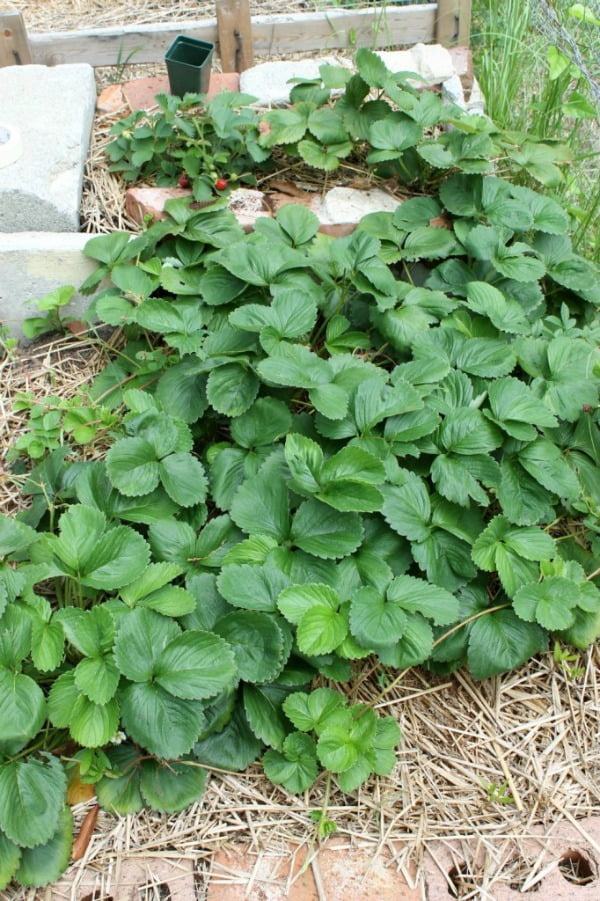
Determining the Quantity and Frequency of Coffee Ground Application
Recommended Amount
When applying coffee grounds to strawberry plants, it is important to use them in moderation. It is recommended to apply a thin layer of coffee grounds around the base of the plants, avoiding direct contact with the stems. Applying too much coffee grounds at once can increase the acidity levels and potentially harm the plants. A thin layer, about half an inch to an inch in thickness, is sufficient to provide the desired benefits without overwhelming the plants with excessive nutrients or acidity.
Application Frequency
The frequency of applying coffee grounds to strawberry plants depends on various factors, including the soil composition, plant nutrient requirements, and environmental conditions. As a general guideline, applying coffee grounds every few months or as part of your regular fertilization schedule can provide ongoing benefits for the plants. However, it is essential to monitor the plants’ response and adjust the application frequency accordingly. Regular observation and understanding the specific needs of your strawberry plants will help determine the most appropriate frequency for coffee ground applications.
Potential Contaminants in Coffee Grounds
Pesticides and Chemical Residues
One of the potential concerns when using coffee grounds is the presence of pesticides and chemical residues. Conventionally grown coffee beans are often treated with pesticides and other chemicals during cultivation and processing. These chemicals can remain in the coffee grounds and may have adverse effects on plant health if used excessively. To avoid introducing contaminants to the strawberry bed, it is advisable to use organic, pesticide-free coffee grounds. If unsure about the origin of the coffee grounds, it is best to err on the side of caution and limit their use or thoroughly compost them to break down any potential contaminants.
Mold and Fungal Growth
Coffee grounds, like other organic materials, have the potential to support mold and fungal growth if they are excessively damp or not properly managed. Mold and fungi can become a health risk for plants, leading to diseases such as root rot or damping-off. To mitigate the risk, it is important to ensure proper moisture management when using coffee grounds. Avoid overwatering or allowing the coffee grounds to become waterlogged. Proper aeration and drainage in the strawberry bed, along with regular monitoring of moisture levels, will help prevent mold and fungal issues.
In conclusion, using coffee grounds for strawberry plants offers several benefits, including improving soil quality, enhancing nutrient availability, suppressing weeds, and repelling pests. However, it is important to consider factors such as acidity levels, quantity and frequency of application, the composting process, moisture retention, and potential contaminants. By adhering to proper guidelines and monitoring the plants’ response, you can effectively utilize coffee grounds to optimize the growth and productivity of your strawberry plants.
